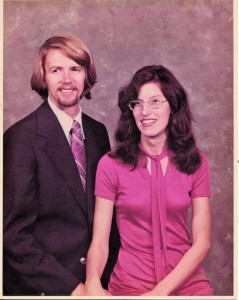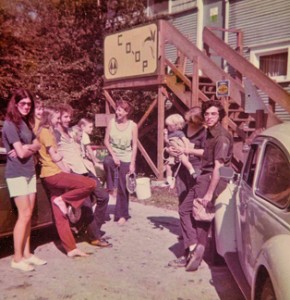Ila Rae Merten
By Victoria Register-Freeman
Resident Community News
Ila Rae Merten is a transplant into the Historic District, not a native plant. Still, her almost half a century residence in the District gives her deep struck roots. Arriving in Jacksonville from Okeechobee in the early ‘70s, Merten was unaware of the Riverside area. “I chose Arlington because I saw there was a university there. But it turned out the area was more military than academic.
“A friend of mine invited me to her apartment on Donald Street. I fell in love with the area and moved immediately. I joined the Food Co-op Natural Alternatives on Park Street. I think it had started at the Unity Church, but by the time I joined it was now located next to a 7-11 on Park. It was there I met my husband Tom Merten.
“The Co-op had been given the use of some land out in Whitehouse on which to grow strawberries. Unfortunately, we planted them in a drought, so I began traveling out there with Tom to water them. The berries did not make it, but we were able to grow greens, trashcans full of them.
“Tom and I were married in 1975 and began to house hunt shortly thereafter. Tom typed up a brief note that told folks we were looking for a three bedroom, two bath house with room for a garden. We walked around the area we liked which was between Park and Post and west of Willowbranch to put out the notes. The owner of 2804 Post Street called us and that is how we got the house we have lived in for 38 years.
“When we moved into the neighborhood it was in serious decline. Many of the original homeowners had grown elderly and couldn’t keep up their homes. Some owners had died and their homes had become rental properties rather than attracting new owners because of a housing glut and rising interest rates and it was difficult to get a good mortgage.
“A really sad example of the area’s decline was the bungalow diagonally across Post Street from us. It had been divided into two apartments. It burned and was condemned. Somehow the owner managed to re-rent it without renovating it. It burned again and was finally shut down by the city.
“When we moved in, many of our elderly neighbors came to welcome us. Women like Nellie Crews and Lillie Mains were very glad to have as neighbors. Later, I learned why they were so enthused. Our house had been used as party central for some time. Perhaps that explained the pile of mattresses we found on the back porch.
“Rounds of burglaries and break-ins plagued the neighborhood. The problems caught the attention of Father Jim Dannals, Rector of the Church of the Good Shepherd on Stockton Street. Fr. Dannals organized efforts to fight crime. We formed Civilian Crime Patrols and were taught how to recognize suspicious activities. We built community by planting trees and participating in RAP potlucks. It was really helpful to swap stories with other urban pioneers, folks who were doing some of the same things we were doing.
“We banded together to encourage home ownership. Richard Eckler’s house which is several houses east of ours was sold to him with a community paint job offered if he bought the house to live in. Ten to fifteen of us painted the house before he moved in.
“Each sale made the neighborhood more desirable. Some folks from RADO, Barney Smith and Darrell Smith, approached my husband about recommending a renovation and he encouraged them to buy the house that had burned twice. When it was fixed up, it sold immediately and was the catalyst for the restoration and sale of several other homes. It was a classic domino effect. The renovation became the site of a father-daughter mini-school as Tom taught Erin, our daughter, her basic carpentry skills.
“In addition to Erin, we had Jonathan. Because we were committed to public education, we became active at West Riverside Elementary, a school that had been in transition for years. Once the elementary schools of community leaders, it was now 87% free lunch. Some of the teachers were demoralized by the change.
“Suzanne McCrary organized parental support for the school. It seems a number of Riverside parents had been sending their children to Fishweir using relatives’ addresses. Suzanne confronted them and encouraged them to come back to West Riverside and support the PTA’s efforts to improve the school.
“Improve it we did. We did fundraising for supplies and volunteered our time in the classroom. Cleaning out the PTA closet one day, I read some minutes that were written almost a century ago. During that meeting, there had been a discussion of landscaping and a possible talk on eugenics.
“Looking back, it seems to me that we were community building. I’m not sure we called it that at the time, but that is certainly what we were doing.”








